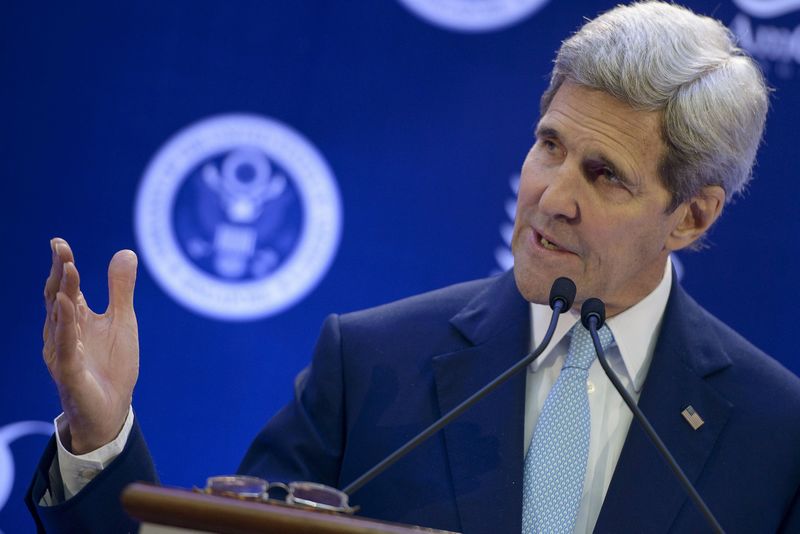By David Brunnstrom
SINGAPORE Reuters) - U.S. Secretary of State John Kerry said on Tuesday "good progress" was made toward a 12-nation Trans-Pacific trade deal last week, even though negotiators failed to reach an accord in marathon talks in Hawaii.
"As with any complex negotiation ... there remain details to be hashed out," Kerry said in a speech during a stop in Singapore on his way to meetings of the 10 nation Association of South East Asian Nations (ASEAN) in Malaysia on Wednesday.
"Last week in Hawaii, we made good progress in our negotiations," he said adding that countries negotiating the 12-nation Trans-Pacific Partnership (TPP) were "pressing on to work through tough negotiations on even the most sensitive issues."
On Friday, Pacific Rim trade ministers failed to clinch a deal on the TPP - the key economic arm of President Barack Obama's rebalance to Asia in the face of China's growing influence in the region.
The talks on the TPP, which would free up trade in an area covering 40 percent of the world's economy, stalled after a dispute flared up over auto trade between Japan and North America, New Zealand dug in over dairy trade and no agreement was reached on monopoly periods for next-generation drugs.
Singapore and three other ASEAN countries - Brunei, Malaysia and Vietnam - are part of the TPP negotiations.
Even though the Hawaii talks were billed as the last chance to get a deal in time to pass the U.S. Congress this year before 2016 presidential elections muddy the waters, trade ministers remained confident that an agreement was within reach.
Kerry said the trade talks were "nearing completion" and called the TPP "a tangible means of demonstrating America's firm and enduring commitment to the security and prosperity of the Asia-Pacific."
The TPP seeks to meld bilateral questions of market access for exports with one-size-fits-all standards on issues ranging from workers' rights to environmental protection and dispute settlement between governments and foreign investors.
The White House said on Monday U.S. negotiators were working to find common ground with other countries, but also the best deal for Americans, and any deal would have to meet Obama's criteria.
Japan and the United States had largely agreed on the rules of origin for cars, which determine when a product is designated as coming from within the free trade zone and therefore not subject to duties. But they ran into problems trying to get buy-in from Canada and Mexico, which are closely tied in to the U.S. auto industry.

Japanese automakers source many car parts from Thailand, another ASEAN member but not a TPP participant, and strict rules would upset existing supply chains.